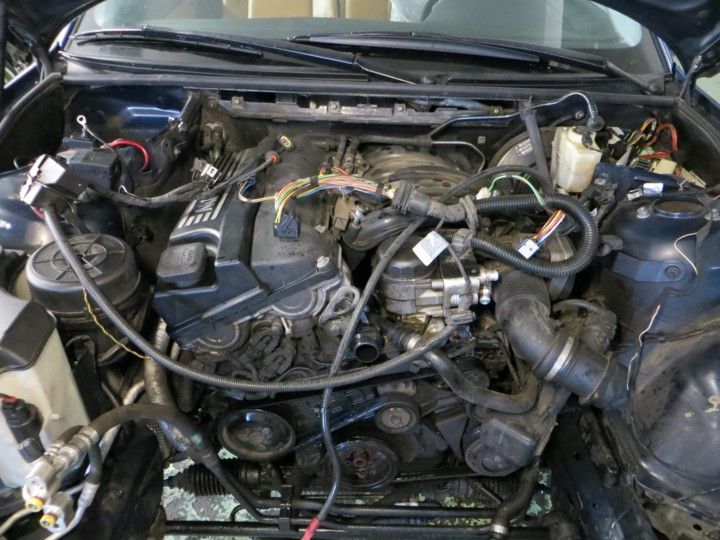BMW 318ti: Performance Specifications and Features Explained
BMW 318ti: Performance Specifications and Features Explained
Blog Article
Critical Facets to Assess Before Purchasing an Engine for Optimum Capability
From engine power and performance to fuel performance and upkeep factors to consider, each element plays an essential role in determining the engine's suitability for a specific application. Compatibility with existing vehicle systems and offered service warranty and support alternatives can substantially impact the long-lasting efficiency and cost-effectiveness of the engine.
Engine Power and Efficiency
When thinking about engine power and performance, it is crucial to evaluate the specific needs of the meant usage to make certain ideal effectiveness and effectiveness. The power result of an engine directly affects its efficiency abilities, affecting variables such as acceleration, towing capability, and general operational strength. Comprehending the demands of the application is essential in determining the ideal balance of power and efficiency characteristics.
Engine power is typically determined in devices such as horsepower (hp) or kilowatts (kW), showing the amount of job the engine can execute gradually. Higher power scores usually result in better acceleration and full throttle, making them appropriate for applications calling for quick responsiveness or durable jobs. However, it is crucial to match the engine's power output to the certain requirements of the planned use to avoid ineffectiveness or unneeded strain on the machinery.
Additionally, engine performance incorporates a variety of elements beyond just power, including gas performance, exhausts control, and reliability - bmw 318ti. Examining these elements along with power factors to consider is important for making sure that the engine not just supplies the essential toughness yet additionally runs sustainably and durably in its intended environment
Fuel Efficiency and Consumption
Taking into consideration the essential function of engine performance in establishing its viability for various applications, the analysis of gas efficiency and intake ends up being paramount in maximizing operational prices and environmental impact. Gas efficiency refers to the engine's capacity to convert gas into usable power effectively.
When analyzing fuel intake, it is important to analyze the engine's specific metrics, such as gallons of fuel eaten per hour or miles per gallon, relying on the application. Comprehending just how much fuel an engine consumes under different operating problems can assist anticipate lasting costs and strategy for reliable fuel monitoring techniques.
In addition, developments in engine technology, such as hybrid systems or gas injection enhancements, can significantly improve gas efficiency and decrease intake. Prioritizing engines with exceptional gas performance and lower usage prices can bring about substantial cost savings and promote sustainability in different sectors.
Compatibility With Vehicle Solutions
Making sure smooth integration and ideal efficiency, the compatibility of an engine with lorry systems is a pivotal element to evaluate prior to purchasing decision. The engine acts as the heart of a lorry, and its capacity to function sympathetically with the various systems within the car is vital for total capability.
Compatibility encompasses a variety of aspects, consisting of electric systems, transmission systems, and exhaust systems. An engine that is not suitable with these essential parts can bring about concerns such as electric breakdowns, ineffective power transfer, and boosted exhausts.
In addition, compatibility with onboard computer system systems is crucial for modern-day lorries. The engine has to have the ability to interact successfully with the automobile's computer to make sure appropriate performance monitoring and diagnostics.

Upkeep and Long Life Considerations

Long life factors to consider additionally involve evaluating the engine's design, innovation, and compatibility with the automobile to make certain optimum efficiency throughout its life-span - bmw 318ti. Engines with advanced features like efficient cooling systems, resilient elements, and fuel-efficient styles have a tendency to have far better long life and call for less repairs. By prioritizing maintenance and choosing an engine recognized for its longevity, buyers can make a well-informed choice that boosts their automobile's efficiency and general driving experience
Guarantee and Support Choices
Provided the crucial click here now duty of upkeep and longevity factors to consider in choosing an engine, a sensible purchaser must currently focus on reviewing the offered service warranty and support alternatives. The guarantee offered with an engine can differ substantially between suppliers and models.
Along with the warranty, examining the assistance choices available is important. Assistance solutions can vary from technical support hotlines to on-site repair and maintenance solutions. A strong support group can substantially reduce downtime in situation of engine failing or concerns, ultimately conserving time and money. Purchasers must inquire about the schedule of extra components, authorized service centers, and the responsiveness of the assistance group.

Verdict
In conclusion, when purchasing an engine, it is important to assess its power, fuel effectiveness, compatibility with automobile systems, upkeep demands, durability, and guarantee choices. These vital elements play a considerable role in identifying the optimal functionality of the engine. By carefully considering these factors, customers can make certain that they are spending in an engine that satisfies their needs my link and delivers reliable performance in the lengthy run.
From engine power and efficiency to fuel effectiveness and maintenance factors to consider, each variable plays an essential function in determining the engine's viability for a certain application.Engine power is commonly gauged in systems such as horsepower (hp) or kilowatts (kW), showing the quantity of work the engine can perform over time.Considering the critical function of engine performance in establishing its suitability for numerous applications, the analysis of fuel performance and usage becomes paramount in enhancing operational prices and environmental influence. Fuel performance refers to the engine's capability to transform fuel right into usable power efficiently. Furthermore, taking into consideration the top quality of materials and building of the engine is vital as it can straight influence durability and exactly how well the engine endures wear and tear over time.
Report this page